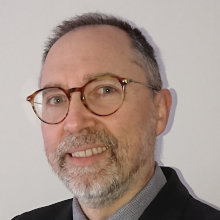Let’s talk about you: what is your background, what do you teach, and what are your research interests?
I was born in Venice, at Ca' Foscari I teach environmental economics, environmental policy and tools for integrated economic assessment of climate change impacts. I have always worked on environmental economics, environmental policy and, more generally, on sustainability.
What was your academic career?
I graduated and got my PhD at Ca' Foscari. I have a Master's Degree in economics from University College of London. I taught for many years at the Università Statale di Milano, from which I have recently moved. Among my academic experiences, I would like to mention my ongoing partnership with the Euro-Mediterranean Centre on Climate Change, where I coordinate a research division.
What are your professional references?
If we are talking about research centres and facilities, apart from university, and there is still no other organisation that allows free, creative and innovative research like university, while admitting its shortcomings, there are the great international research centres, with which I have had the chance to work. I would not overlook Europe's role in promoting and supporting research and the circulation of ideas. If we are talking about people, those scientists who are prepared to work outside academia to try to tackle major economic and social challenges in a practical way. Two examples (among many): Joseph Stiglitz, Esther Duflo.
What were your greatest professional satisfactions?
Definitely when I managed to put together, obviously with the help of my colleagues, winning research projects that were then funded nationally, in Europe or outside Europe. Seeing not only the validity of your ideas, but also your planning skills, recognised in a tangible way is certainly rewarding.
Which is the area you have always wanted to be involved in but have not yet had the opportunity to explore?
In economics, theoretical and applied decision-making processes in cases of limited rationality, uncertainty and incomplete information. Outside economics, string theory (dreaming costs nothing). Outside science, MTB trail riding.
What is the aspect of your research you are most passionate about?
Definitely cross- and multidisciplinarity. For instance, when assessing the economy of climate change impacts, it is normal to deal with climatologists, oceanographers, biologists, architects, insurers, etc. During the assessment process, different methods need to be applied: economic models, econometric approaches, and cost-benefit analysis. And don't forget the international dimension. The scientific community dealing with these issues is global, which gives you the chance to exchange ideas and work with researchers from all over the world... In short, it's not easy to get bored.
Have you always known that this was going to be your path?
Maybe not researching environmental economics, but the idea of researching has always interested me and I have always considered it a possibility. I remember being interested in three fields above all others: history, physics and economics. Then, partly due to the excellent university near my home, the third prevailed.
What do teaching and researching mean to you?
Teaching means first and foremost passing on an ability to think critically and independently, enabling students to find their way in any given context. Obviously, this also involves conveying notions and, unfortunately for the student, testing whether they have learned. Researching means trying to give useful answers to important questions. Which questions? Well, to find them you obviously have to research...
Can you offer any advice to researchers in the early stages of their career?
Do it!

